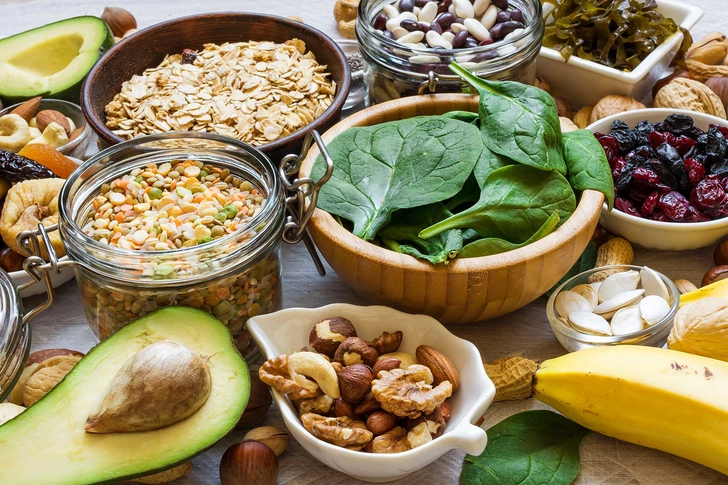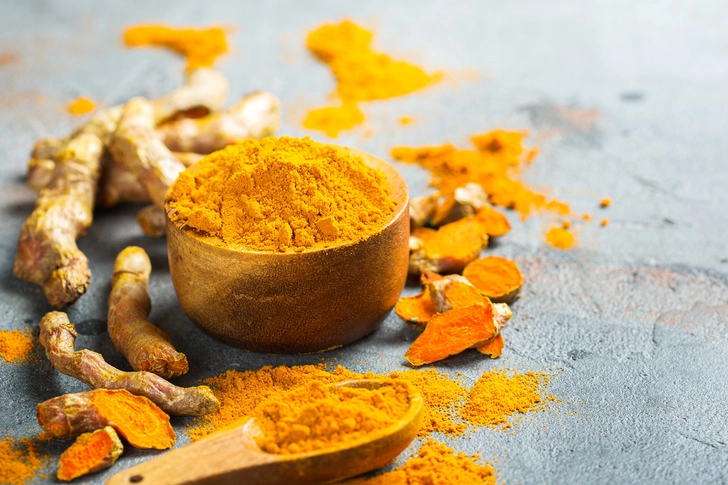- Overview
- Symptoms
- Causes & Risks
- Diagnosis
- Types
- Major Depressive Disorder
- Treatment
- Antidepressants
- Treatment-Resistant Depression (TRD)
- Living With
- Recovery & Relapse
- Complications
- Caregiving & Support
- Appointment Prep
- View Full Guide
Lifestyle Changes to Ease Depression


Get Moving to Lift Your Mood
Regular exercise isn't just good for your physical health—it's a powerful depression fighter. Research shows that exercise can be as effective as therapy or medication for some people. Physical activity releases endorphins, increases body temperature, and reduces immune system chemicals that can worsen depression. Aim for 30 minutes of moderate activity most days but even small amounts help. Walking, swimming, or dancing—find something enjoyable that you'll stick with.

Feed Your Mind with Good Food
What you eat directly affects your brain chemistry and mood. A Mediterranean diet rich in fruits, vegetables, whole grains, fish, and healthy fats has been linked to lower rates of depression. Foods high in omega-3 fatty acids (like salmon and walnuts), folate (leafy greens), and antioxidants support brain health. Meanwhile, processed foods, sugar, and excessive alcohol can trigger inflammation and worsen symptoms. Even small changes in your diet can make a big difference in how you feel both physically and emotionally.

Get Some Sunshine
Natural light helps regulate your body's internal clock and serotonin levels, which affect mood. Morning sunlight can reset your circadian rhythm, which can help you sleep better. Even on cloudy days, outdoor light is much brighter than indoor lighting. Try to get at least 15-30 minutes of natural light daily, especially in the morning. If you live in an area with limited sunlight, talk to your doctor about whether to use a light therapy box.

Prioritize Quality Sleep
Poor sleep can worsen depression, and depression makes good sleep harder to achieve. Break this cycle by practicing good sleep hygiene: maintain a consistent sleep schedule, create a relaxing bedtime routine, keep your bedroom cool and dark, avoid screens before bed, and limit daytime napping. If sleep problems persist despite these efforts, talk to your healthcare provider. Addressing sleep issues can significantly improve depression symptoms.

Strike a Pose with Yoga
Yoga combines physical movement with breathing techniques and mindfulness—a powerful combination for depression relief. Regular practice reduces stress hormones like cortisol while increasing GABA, a neurotransmitter that promotes calmness. Different styles offer various benefits: gentle restorative poses help with relaxation, while more active vinyasa flows boost energy. Even 15-20 minutes daily can help regulate your mood. Many free online videos make it easy to start at home with no special equipment needed.

Connect with Furry Friends
Pets provide more than just companionship—they offer meaningful emotional support for people with depression. Caring for an animal establishes routine and responsibility, which can be grounding when you're struggling. The physical touch involved in petting animals releases oxytocin, reducing stress hormones. Walking a dog provides exercise and social interaction. Even watching fish swim can lower blood pressure and reduce anxiety. If pet ownership isn't possible, consider volunteering at an animal shelter.

Try Mindfulness Meditation
Mindfulness teaches you to observe thoughts and feelings without judgment, breaking the cycle of negative thinking that fuels depression. Regular meditation changes brain structure, increasing gray matter in regions associated with self-awareness and compassion. Start with just 5-10 minutes daily, focusing on your breath. When thoughts arise (as they inevitably will), gently redirect your attention without self-criticism. Free apps like Insight Timer or Headspace offer guided meditations specifically designed for depression.

Boost Your Magnesium Intake
Magnesium deficiency is common and may contribute to depression symptoms. This essential mineral helps regulate neurotransmitters, hormone production, and stress response. Studies suggest supplementation can reduce symptoms in some people with depression. Food sources include dark leafy greens, nuts, seeds, whole grains, and dark chocolate. If considering supplements, consult your doctor first, especially if you take other medications, as the recommended dosage varies based on individual needs and potential interactions.

Try Turmeric
The active compound in turmeric, curcumin, shows promise for depression treatment through its anti-inflammatory and neuroprotective properties. Chronic inflammation is increasingly recognized as a factor in depression, and curcumin may help by reducing inflammatory markers. It also boosts brain-derived neurotrophic factor (BDNF), which supports neuron growth and is often low in people with depression. While adding turmeric to your cooking is beneficial, therapeutic doses typically require supplements. Always talk to your doctor before starting any supplement.

Maintain Social Connections
Social support buffers against stress and provides perspective when negative thoughts take over. Make regular plans with supportive friends or family, even when you don't feel like it. Consider joining a support group where others understand what you're experiencing. Volunteering can be particularly beneficial, as helping others activates reward centers in the brain. If in-person interaction feels overwhelming, start with phone calls, video chats, or online communities.

Limit Alcohol and Caffeine
Though you might reach for alcohol to numb difficult feelings or caffeine for energy when depressed, both can worsen symptoms long-term. Alcohol is a depressant that disrupts sleep patterns, alters brain chemistry, and can interact dangerously with antidepressants. Too much caffeine can increase anxiety and may interfere with your sleep. Cut back on caffeine gradually rather than quitting cold turkey. Replace these habits with healthier alternatives like herbal tea, sparkling water with fruit, or short walks for natural energy boosts.

Set Small, Achievable Goals
Depression can make even simple tasks feel overwhelming. Break larger goals into smaller, manageable steps that provide a sense of accomplishment. Start extremely small if needed—even getting out of bed or taking a shower counts. Write down your goals and track progress visually. Celebrate each success, no matter how small. This builds momentum and gradually restores confidence in your abilities. Some days will be harder than others, and that's normal.
PHOTO CREDENTIALS
Slide 1 - Lordn / Getty Images
Slide 2 - MarianVejcik / Getty Images
Slide 3 - Halfpoint Images / Getty Images
Slide 4 - wavebreakmedia / Shutterstock
Slide 5 - f.t.Photographer / Shutterstock
Slide 6 - FluxFactory / Getty Images
Slide 7 - Inside Creative House / Getty Images
Slide 8 - iStock / Getty Images
Slide 9 - Aamulya / Getty Images
Slide 10 - Tint Media / Shutterstock
Slide 11 - shisu_ka / Shutterstock
Slide 12 - JLco Julia Amaral / Shutterstock
SOURCES
National Center for Complementary and Alternative Medicine: "St. John’s Wort and Depression." "Yoga for Health," "Depression and Complementary Health Practices."
FDA: "The Lowdown on Depression."
National Institute of Mental Health: "What is Depression?"
American Psychiatric Association, Practice Guideline for the Treatment of Patients with Major Depression, 2000.
American Psychiatric Association. Diagnostic and Statistical Manual of Mental Disorders: DSM-IV-TR, American Psychiatric Pub, 2000.
WebMD: "What is guided imagery?"
National Institute on Aging: "Don't Let the Blues Hang Around."
Mental Health America: "Staying Well When You Have a Mental Illness."
American Psychiatric Association, Practice Guideline for the Treatment of Patients with Major Depression, 2000.
American Psychiatric Association. Diagnostic and Statistical Manual of Mental Disorders: DSM-IV-TR, American Psychiatric Pub, 2000.
Fieve, R. Bipolar II, Rodale Books, 2006.
Ganji, V. Archives of Internal Medicine, November 2010.
Amit Etkin, MD, PhD, assistant professor of psychiatry and behavioral sciences, Stanford University, Palo Alto, CA.
Harvard Medical School: "Exercise and depression," "Seasonal affective disorder: Bring on the light."
Andrew Leuchter, MD, professor of psychiatry; director, Laboratory of Brain, Behavior, and Pharmacology; senior research scientist, Semel Institute for Neuroscience and Human Behavior and the Brain Research Institute, UCLA.
National Sleep Foundation: "Depression and sleep," "Sleep hygiene," "Cognitive behavioral therapy for insomnia."
National Health Service (UK): "Depression support groups."
National Institute of Mental Health: "Psychotherapies," "Brain stimulation therapies."
Bell, A. Clinical Psychology Review, June 2009.
Johns Hopkins Medicine: "Frequently asked questions about TMS."
National Institute on Aging: "Don't Let the Blues Hang Around."
Mental Health America: "Staying Well When You Have a Mental Illness."
Cleveland Clinic: "Endorphins."
Mayo Clinic: "Clinical depression: What does that mean?"
Johns Hopkins Health: "Depression and Sleep: Understanding the Connection."
International Journal of Obesity: "The influence of 15-week exercise training on dietary patterns among young adults."
Harvard Health: "Exercise is an all-natural treatment to fight depression."
Sandra Barker, PhD, licensed professional counselor; director, Center for Human-Animal Interaction, and psychiatry professor, Virginia Commonwealth University.
Perpetua Neo, PhD, clinical psychologist.
Desiree Wiercyski, life coach, Fort Wayne, IN.
Avigayil Brown, Brooklyn, NY.
Courtney Sparkman, Tulsa, OK.
Anthrozoös: A multidisciplinary journal of the interactions of people and animals: "Do Animal-Assisted Activities Effectively Treat Depression? A Meta-Analysis."
Anxiety and Depression Association of America: "Alleviating Anxiety, Stress and Depression with the Pet Effect."
Human-Animal Bond Research Institute: "Survey: Pet Owners and the Human-Animal Bond."
webmd.com/depression/magnesium-for-depression
The BMJ: “Effect of exercise for depression: systematic review and network meta-analysis of randomised controlled trials.”
CNN: “These simple activities can treat depression as effectively as therapy, study says.”
American Psychiatric Association: “What Is Depression?”
Archives of General Psychiatry: “Complementary Therapies for Depression: An Overview.”
Current Opinion in Psychiatry: “The gut microbiome and diet in psychiatry.”
Harvard Health Publishing: “Diet and depression.”
Harvard Health Publishing: “Nutritional psychiatry: Your brain on food.”
Environmental Health: “Effect of sunlight exposure on cognitive function among depressed and non-depressed participants: a REGARDS cross-sectional study.”
Journal of Affective Disorders: “A review of lifestyle factors that contribute to important pathways associated with major depression: Diet, sleep and exercise.”
Journal of Affective Disorders: “Interacting with Nature Improves Cognition and Affect for Individuals with Depression.”
Mayo Clinic: “Antidepressants: Selecting one that’s right for you.”
Mayo Clinic: “Depression and anxiety: Exercise eases symptoms.”
Mayo Clinic: “Depression (major depressive disorder).”
National Suicide Prevention Lifeline.
Nutritional Neuroscience: “Natural products, micronutrients, and nutraceuticals for the treatment of depression: A short review.”
Psychiatria Polska: “Herbal remedies in depression - State of the art.”
Scientific Reports: “Depressive symptoms are associated with social isolation in face-to-face interaction networks.”
The National Sleep Foundation. American Academy of Family Physicians.
WebMD Health News: "Oral Spray Sleep Drug Zolpimist Approved."
News release, FDA.
Allies In Mental Health: Quebec: "Smiling Depression: An In-Depth Look."
Association for Psychological Science: "The Psychological Study of Smiling."
Chinese Journal of General Practice: "Investigation and Analysis on Smiling Depression of College Students in Guangzhou City."
Cleveland Clinic: "Persistent Depressive Disorder," "What Is High-Functioning Depression? Signs and Symptoms."
Emotion: "The Value of Genuine and Polite Smiles."
Experimental Psychology: "Your Face and Moves Seem Happier When I Smile."
Journal of Social and Personal Relationships: "Smiling Won’t Make You Feel Better, But It Might Make People Like You More: Interpersonal and Intrapersonal Consequences of Response-Focused Emotion Regulation Strategies."
Mayo Clinic: “Depression (major depressive disorder),” “Depression and Anxiety: Exercise Eases Symptoms,” "Depression: Supporting a Family Member or Friend."
National Alliance on Mental Illness: “What You Need to Know About ‘Smiling Depression.,” "The Reality of High-Functioning Depression."
National Institute of Mental Health: "Depression."
Cancer Research and Treatment: "Recent Developments in Delivery, Bioavailability, Absorption and Metabolism of Curcumin: the Golden Pigment from Golden Spice."
Cleveland Clinic: "7 Tips for Taking Turmeric."
Frontiers in Immunology: "The Role of Inflammation in Depression and Fatigue."
Memorial Sloan Kettering Cancer Center: "Turmeric."
National Center for Complementary and Integrative Health: "Turmeric," "Antioxidants: In Depth."
Linus Pauling Institute: "Curcumin."
The Journal of Clinical Psychiatry: "A Critical Examination of Studies on Curcumin for Depression."
Critical Reviews in Food Science and Nutrition: "Curcumin, an active component of turmeric (Curcuma longa), and its effects on health."
InformedHealth.org: "What is an inflammation?"
National Institute of Mental Health: “Depression,” “Anxiety Disorders.”
American Family Physician: “Depression and Anxiety Disorders: Benefits of Exercise, Yoga, and Meditation.”
British Journal of Sports Medicine: “Effects of yoga on depressive symptoms in people with mental disorders: a systematic review and meta-analysis.”
National Center for Complementary and Integrative Health: “Yoga: What You Need To Know.”
Mayo Clinic: “Exercise: When to check with your doctor first,” “Intimidated by yoga? 3 easy ways to get started,” “Yoga: Fight stress and find serenity.”